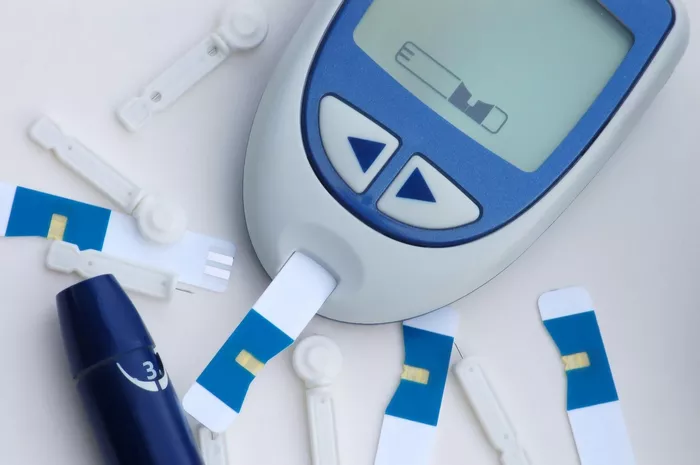Metformin is a widely prescribed medication for the management of type 2 diabetes mellitus (T2DM), renowned for its efficacy, safety profile, and cost-effectiveness. However, confusion may arise regarding the various formulations of metformin available on the market, particularly concerning Metformin Hydrochloride (HCL) and plain Metformin. In this comprehensive article, we delve into the differences between Metformin HCL and Metformin, elucidating their pharmacological nuances, clinical implications, and considerations for healthcare practitioners and patients.
1. Understanding Metformin:
Metformin belongs to the class of medications known as biguanides and is the first-line oral antidiabetic agent recommended for the management of T2DM. It exerts its glucose-lowering effects primarily by decreasing hepatic glucose production, increasing peripheral glucose uptake and utilization, and improving insulin sensitivity. Metformin also has beneficial effects on lipid metabolism, cardiovascular health, and weight management, making it a cornerstone therapy in the treatment of T2DM.
2. Metformin Hydrochloride (HCL):
Metformin Hydrochloride, commonly referred to as Metformin HCL, is the most prevalent formulation of metformin available on the market. It is a crystalline compound composed of metformin and hydrochloride salt, formulated for oral administration in tablet form. Metformin HCL is available in various strengths, ranging from 500 mg to 1000 mg, and is typically prescribed in divided doses taken with meals to minimize gastrointestinal side effects.
The addition of hydrochloride salt to metformin enhances its stability, solubility, and bioavailability, facilitating its absorption and distribution in the body. Metformin HCL tablets are designed for extended-release formulations, allowing for once-daily dosing and improved gastrointestinal tolerability compared to immediate-release formulations.
3. Plain Metformin:
Plain Metformin, also known as Metformin Base, is another formulation of metformin that lacks the hydrochloride salt component found in Metformin HCL. It is available in immediate-release formulations, typically in lower strengths ranging from 250 mg to 500 mg, and is often used in combination with other antidiabetic medications, such as sulfonylureas or insulin, for enhanced glycemic control.
Unlike Metformin HCL, plain Metformin may be less soluble and may exhibit differences in pharmacokinetic properties, absorption rates, and bioavailability. However, the clinical significance of these differences remains a subject of debate, as both formulations have demonstrated comparable efficacy and safety profiles in the management of T2DM.
4. Pharmacokinetic and Pharmacodynamic Differences:
While Metformin HCL and plain Metformin share the same active ingredient (metformin), differences in formulation and delivery may result in variations in pharmacokinetic and pharmacodynamic properties. Studies have suggested that Metformin HCL extended-release formulations may exhibit slower absorption rates, longer duration of action, and reduced peak plasma concentrations compared to immediate-release formulations of plain Metformin.
However, these differences may not necessarily translate into clinically significant variations in efficacy or safety. Both Metformin HCL and plain Metformin are effective in lowering blood glucose levels, improving insulin sensitivity, and reducing hemoglobin A1c (HbA1c) levels in individuals with T2DM. The choice between the two formulations may depend on individual patient factors, tolerability, dosing frequency, and cost considerations.
5. Clinical Considerations and Recommendations:
When prescribing metformin for the management of T2DM, healthcare practitioners should consider various factors, including patient preferences, comorbidities, renal function, and concurrent medications. Metformin is contraindicated in individuals with renal impairment (creatinine clearance <30 mL/min) due to the risk of lactic acidosis, a rare but serious adverse effect associated with metformin therapy.
Regular monitoring of renal function, liver function, and vitamin B12 levels is recommended for individuals receiving long-term metformin therapy to detect potential adverse effects and optimize treatment outcomes. Healthcare providers should also educate patients about the importance of adherence to prescribed dosing regimens, dietary modifications, and lifestyle interventions to maximize the benefits of metformin therapy and improve long-term glycemic control.
6. Conclusion:
In conclusion, Metformin HCL and plain Metformin are two formulations of metformin commonly used in the management of T2DM. While both formulations contain the same active ingredient (metformin), differences in formulation, delivery, and pharmacokinetic properties may exist, potentially influencing their clinical efficacy and tolerability.
Healthcare practitioners should consider individual patient factors, preferences, and clinical guidelines when selecting the appropriate formulation of metformin for the management of T2DM. Regular monitoring of renal function, liver function, and metabolic parameters is essential to ensure the safe and effective use of metformin therapy and optimize treatment outcomes for individuals with T2DM.
By understanding the distinctions between Metformin HCL and plain Metformin and tailoring treatment approaches to individual patient needs, healthcare providers can help improve glycemic control, reduce the risk of diabetes-related complications, and enhance the quality of life for individuals living with T2DM.

























